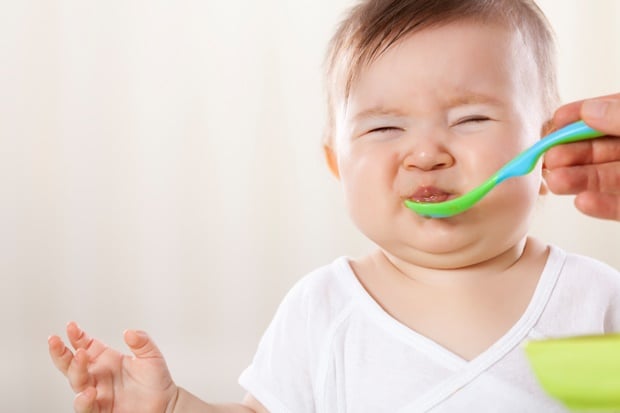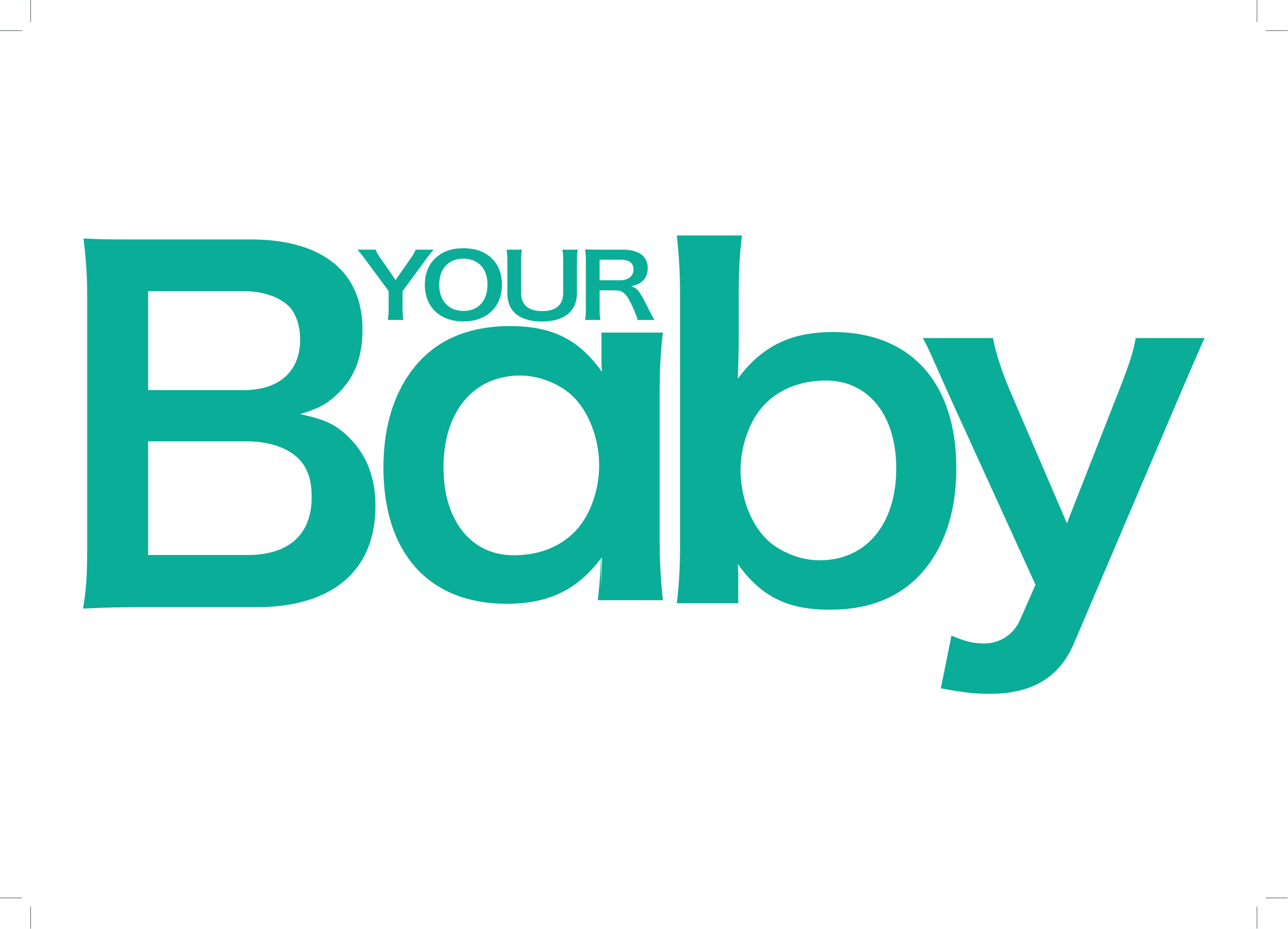
Offering your child their first bite of solid food is an exciting milestone. Parents all over the world mark the occasion, whether it’s simply with photographs or like Hindu parents, with a ritual called annaprashan, at which the baby is fed blessed sweetened rice cereal.
But too often the joy of feeding is turned into a minefield. Every generation of parents have their “gospel truths” about what and when to feed their children. Until a few years ago we were all told not to introduce solids until six months of age, and to delay the introduction of potential allergens such as fish, eggs and nuts until much later in our children’s lives. But did you know both of those pieces of advice have since changed?
So what are the new rules? Here are five guidelines to help you.
Myth #1
"NO SOLIDS UNTIL SIX MONTHS"
The world-leading American Academy of Pediatrics (AAP) amended its advice on the thorny issue of when to introduce solids in 2008. The Academy has revised its “no solids until six months, preferably breastfeed exclusively until then” rule and now says parents should “introduce solids between four and six months while continuing to breastfeed, preferably avoiding formula if possible”.
You know your baby best. Look for signs that she is ready to eat, like following your food with her eyes or lurching for it. With your clinic sister or doctor’s advice you can start your baby on solids when she’s ready. Some people start their babies on solids to help them sleep better but there is no proof this works.
NOTE: Giving your baby solids at four months is fine- solids at four weeks is not! Paediatric dietitian Tammy Wolhuter explains, "A baby's digestive system is not mature enough to digest anything other than breast or formula milk under four months old. Giving too-young children solids may increase risk of allergies, and start forced feeding and other bad habits which can lead to obesity, heart disease and diabetes later in life."
Myth #2
"ABSOLUTELY NO ALLERGENS BEFORE A YEAR"
Traditionally moms were cautioned to avoid giving eggs to under-ones, to introduce fish between one to three only, and to be very cautious when giving nuts to children. These foods are highly allergenic, and the theory was that early introduction of allergens into the diet could cause an allergy to take hold or flare up in a predisposed child.
However, a 2008 study found children were no more likely to develop allergies if introduced to highly allergenic foods earlier. So, in 2010, the AAP revised its stance and now advises parents to offer new, potentially allergenic foods three to four days apart so that you can watch for a reaction to the food, and that in essence, almost anything goes as an acceptable early food. “Be aware that if there’s a family history of allergy, you should still be careful with the introduction of allergens,” says Tammy. “But if there’s no family history you can introduce eggs, nuts and fish anytime you like.”
Obviously, you still need to take reasonable precautions to ensure your child does not choke – so give peanut butter, but not peanuts, to a child with few teeth. Berries and grapes are a choking hazard so cut them up into small enough pieces before giving them to your baby.
Honey poses a small risk of containing botulism, so the advice to wait a year before offering honey to children still stands. Says Tammy: “The immune systems of babies under one are not built up enough to fight botulism in the unlikely event the honey contains botulism spores.”
Myth #3
"THE FIRST FOOD MUST BE RICE CEREAL"
Early feeding is not actually as much about the food as it is an opportunity for your baby to learn about receiving foods from spoons, mashing and tasting, and using her tongue and swallowing. It’s a bombardment of new skills and sensations. She might only be ingesting very little at first – and that’s okay.
Different cultures across the world offer their children very different first foods – and no group’s children are worse off than any other. French parents give leek or garlic vegetable soup as an early food, Koreans feed seaweed soup with rice stirred in, an Eskimo baby’s first food could be seal blubber (yes,really), and Indian babies get coriander, turmeric and cinnamon from six months. In West Africa, the mom pre-chews her baby’s food instead of using blenders (the enzymes from the mother’s saliva actually help the infant digest the food).
The point is, when it comes to choosing your baby’s first food, you can confidently do and choose what your culture does or what seems “right” to you.
Myth #4
"CHILDREN UNDER TWO CAN HAVE LOW FAT DAIRY PRODUCTS"
Any mother who’s scoured the aisles of her grocery shop looking for full-fat yoghurt will tell you it’s not always easy to find. And with yoghurt being such a kid-food staple, does this mean people are feeding their babies – gasp! – skim milk dairy products?
They really shouldn’t, says Tammy. “Try to give full-fat dairy up until the age of two – before that age children need the fatty acids in dairy for development. ”Most of us have been told that children of all ages should have full-fat milk – and that might not be the case. An ever increasing number of our children are overweight, so your paediatrician might well advise reduced-fat dairy for your child once she’s older than two. Ask your doctor.
“Lastly, cow’s milk contains a higher quantity of protein, sodium and potassium. This results in a high renal solute load, which means it may be harder for a baby’s kidneys to process and is inappropriate for babies under one year,” explains Tammy. “Cow’s milk is also lower in most vitamins and minerals compared to breastmilk, or these micronutrients from cow’s milk are not as bioavailable as those in breastmilk. That’s also why dieticians still recommend caution with yoghurt and cheese in under-ones, within reason. Don’t worry about the milk in a meal of macaroni and cheese, but don’t offer yoghurt as a full meal, for example.”
Myth #5
"IT'S NOT GOOD TO LET 'EM GET HUNGRY"
This one can be hard for our generation of parents, trained as we are in the attachment/helicopter/parent-as-slave schools of parenting. Feeding on demand is popular now, whereas our parents would happily let a baby scream from hunger until the next scheduled feed.
But our tendency to meet every need immediately could negatively affect our older toddler’s appetites, and discourage an already fussy eater from finishing his food. “Certainly, drinking fluids such as a milk bottle before meals will fill children up,” says Tammy. Having worked up an appetite for a meal is no bad thing as long as you are offering nutrition at three mealtimes and two snack times a day.




 Publications
Publications
 Partners
Partners











